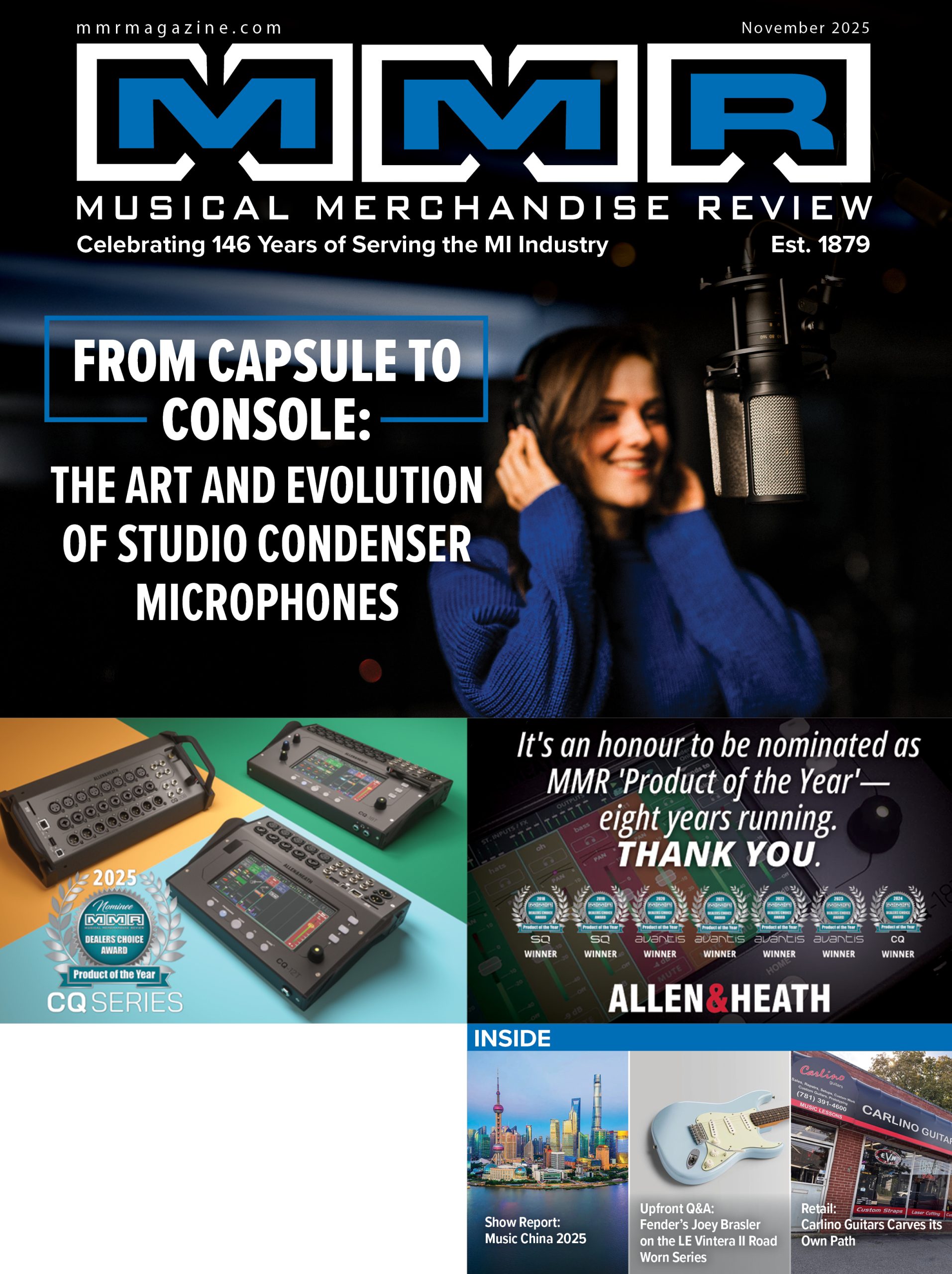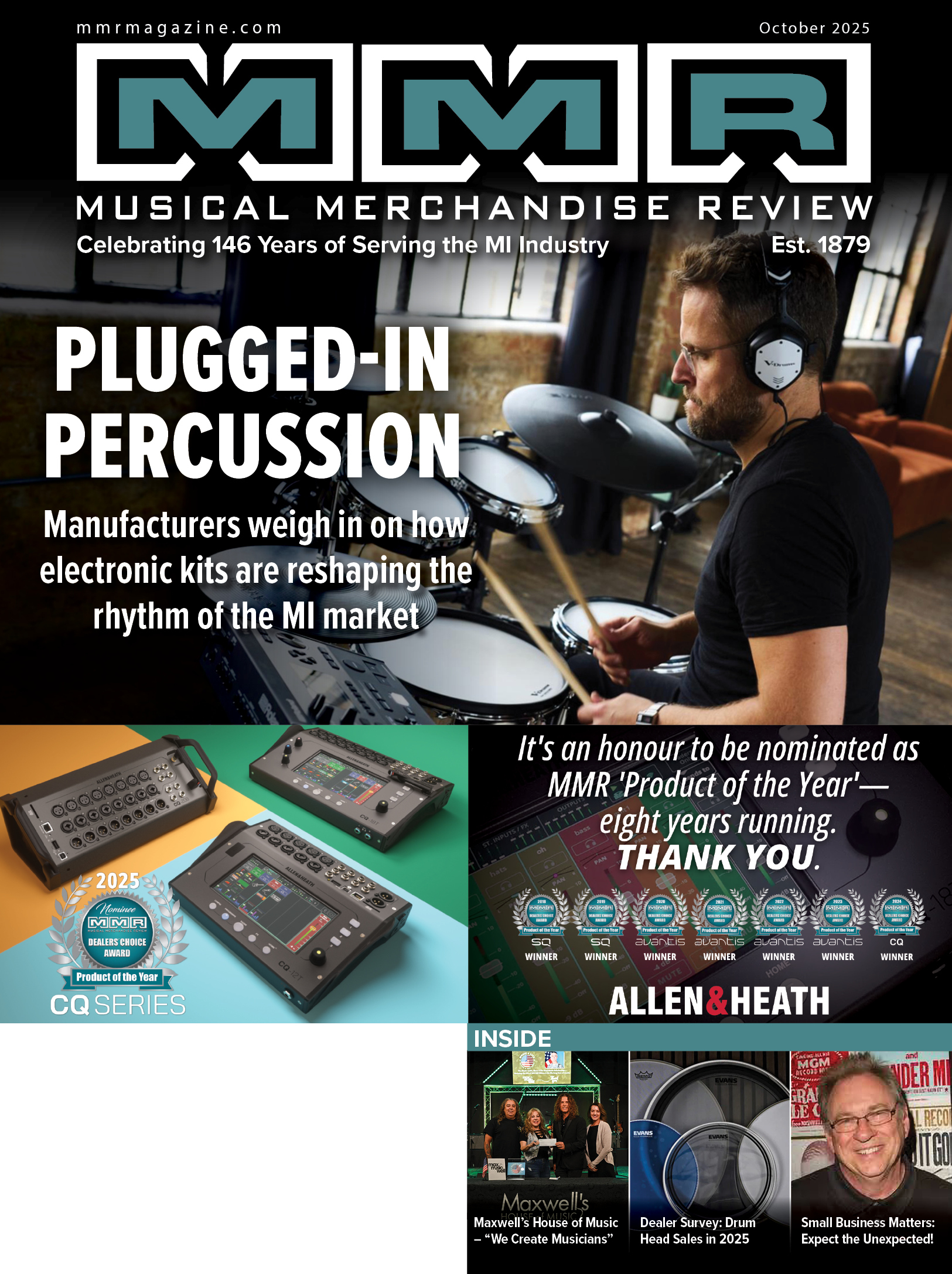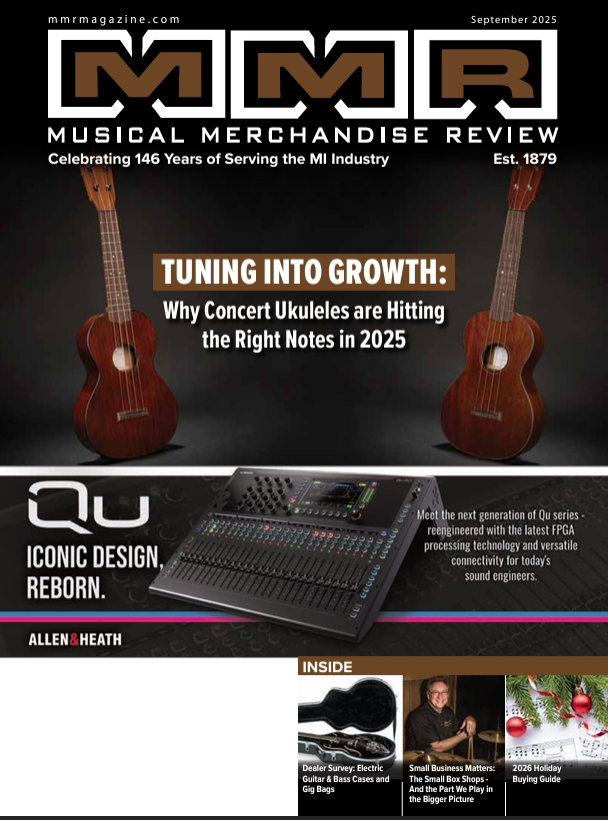 KHS was founded in 1930, and fifty years later, Jupiter Band Instruments was born. It has been 35 years since Jupiter Band Instruments’ initial inception, and really the only thing the Jupiter Band Instruments of 2015 shares with the Jupiter Band Instruments of 1980 is the brand name. “Jupiter started as budget-level beginner instruments made in China that competed strictly on price and had a reputation for being difficult to service and maintain,” said Andy Strayer, vice president of sales. “Today, Jupiter instruments are widely recognized as being very well-made, often best-in-class, although we still fight that 35-year-old stigma felt by many educators.”
KHS was founded in 1930, and fifty years later, Jupiter Band Instruments was born. It has been 35 years since Jupiter Band Instruments’ initial inception, and really the only thing the Jupiter Band Instruments of 2015 shares with the Jupiter Band Instruments of 1980 is the brand name. “Jupiter started as budget-level beginner instruments made in China that competed strictly on price and had a reputation for being difficult to service and maintain,” said Andy Strayer, vice president of sales. “Today, Jupiter instruments are widely recognized as being very well-made, often best-in-class, although we still fight that 35-year-old stigma felt by many educators.”
 2015 marks the 35th anniversary of Jupiter, and they, surprisingly, aren’t celebrating with loads of fanfare. “We feel it’s more important to look forward and continue using our resources to serve the industry and music-makers and to tell the story of today’s Jupiter rather than to celebrate our past,” said Mike Robinson, director of marketing. There will, however, be new product releases on the horizon. “We’ll continue to unveil additions to our 1100 Series,” said Strayer. “To date, we’ve launched 1100 Series trumpets, a tenor and alto sax, a premium-grade granadilla wood clarinet, a flugelhorn, and a compensating euphonium. Still to come are soprano and baritone saxophones, and a trombone.”
2015 marks the 35th anniversary of Jupiter, and they, surprisingly, aren’t celebrating with loads of fanfare. “We feel it’s more important to look forward and continue using our resources to serve the industry and music-makers and to tell the story of today’s Jupiter rather than to celebrate our past,” said Mike Robinson, director of marketing. There will, however, be new product releases on the horizon. “We’ll continue to unveil additions to our 1100 Series,” said Strayer. “To date, we’ve launched 1100 Series trumpets, a tenor and alto sax, a premium-grade granadilla wood clarinet, a flugelhorn, and a compensating euphonium. Still to come are soprano and baritone saxophones, and a trombone.”
If you today were to visit the front page of the Jupiter website, you would see a tile for the NAfME, an image of three children smiling and holding Waveline Series flutes, and a tweet from their Twitter that reads, “Now that’s a teacher! Never letting any child quit and teaching everyone the love of music.” It’s plain to see that – despite the fact that 35 years separates the Jupiter of today from the Jupiter of yesteryear – their priorities are still with the needs of the students and the educators who serve them. With some schools facing budget cuts, and others having to eliminate music education all together, Jupiter going into 2015 calls upon the collective community to help save music in our schools. “The most impactful social movements in history owe their success to the communities that participated in them rather than the individuals or organizations that represented them,” said Robinson. “While organizations like NAfME, NAMM, and others should be applauded for their efforts, the protection and/or revitalization of music education as a core value requires whole community involvement.”
 Not so long ago, the former governor of Arkansas, Mike Huckabee, shared his story about learning to play instruments at a young age as a part of Jupiter’s new “Banded” campaign. The message of the campaign reaffirms Jupiter’s 35-year commitment to the music. “The message is about the importance of playing music… not the importance of playing Jupiter,” said Robinson. The campaign has since grown, evolved, and now found a permanent home on GetBanded.com. On the site, you can access numerous success stories in music from students, educators, and supporters of the arts. There is also a “Banded Resources” tab for educators, which offers tips on motivating students, recruitment and retention of new musicians, integrating technology into the classroom, and bandroom tips, among others.
Not so long ago, the former governor of Arkansas, Mike Huckabee, shared his story about learning to play instruments at a young age as a part of Jupiter’s new “Banded” campaign. The message of the campaign reaffirms Jupiter’s 35-year commitment to the music. “The message is about the importance of playing music… not the importance of playing Jupiter,” said Robinson. The campaign has since grown, evolved, and now found a permanent home on GetBanded.com. On the site, you can access numerous success stories in music from students, educators, and supporters of the arts. There is also a “Banded Resources” tab for educators, which offers tips on motivating students, recruitment and retention of new musicians, integrating technology into the classroom, and bandroom tips, among others.
While things carry on smoothly at Jupiter, their parent company KHS has been making a lot of noise this year. Taking over the North American distribution of Hercules was one big announcement. “Hercules is a KHS-owned brand and it simply makes the most sense to bring U.S. distribution and marketing of it under the same roof as the other KHS-owned brands,” said Strayer. Then of course, there was the acquisition of Hohner, another move that logically, according to Robinson, just made sense. “Hohner’s strength in the Latino music market due to popularity of their accordions and their development of the H. Jimenez line of folk guitars will dovetail nicely with Jupiter brass and Mapex percussion to give that market a connected family of brands that’s eager to help them succeed,” said Robinson. “Likewise, KHS America’s offering within the school music market will expand across a wider age spectrum and new music categories with the addition of Sonor’s line of Orff instruments, Hohner’s recorders and A+ Series beginner guitars, Lanikai Ukuleles, and even harmonicas.”
Winter NAMM season quickly came and went. Mike Robinson remarked that the show felt crowded, although pretty enthusiastic overall. He noticed an increase in consumer presence at this year’s show, which he thought was positive. “Having a little consumer energy at the show is a good thing because that’s who we all should be serving,” said Robinson. And that is what KHS is trying to do with their newest venture: serve the consumer. Robinson commented that the rumor mill was definitely in high gear this year. “The gossip machine was in full swing,” said Robinson. “It was pretty interesting. We were in the center of a lot of that in a positive way.”
 What was the word on everyone’s lips within a fifty-foot radius of the KHS booth? What was all the gossip about? E-drums. What surprised a lot of people was the fact that KHS didn’t release their new e-drums as a part of Mapex. “NFUZD Audio is an entirely new brand being marketed and distributed by KHS,” said Robinson. “The NSPIRE Series e-drums were designed to empower user creativity. The system utilizes an Open Architecture that allows the module to be utilized as an I/O, with the purpose of connecting to a computer and triggering sounds through virtual studio technology (VST) software, or, easily porting sound banks and presets from the VST into the module using a thumb drive. Regardless of where the user chooses to trigger from the module or through BFD ECO NFUZD Edition (the VST software included), the sounds will all be uncompressed WAV files.”
What was the word on everyone’s lips within a fifty-foot radius of the KHS booth? What was all the gossip about? E-drums. What surprised a lot of people was the fact that KHS didn’t release their new e-drums as a part of Mapex. “NFUZD Audio is an entirely new brand being marketed and distributed by KHS,” said Robinson. “The NSPIRE Series e-drums were designed to empower user creativity. The system utilizes an Open Architecture that allows the module to be utilized as an I/O, with the purpose of connecting to a computer and triggering sounds through virtual studio technology (VST) software, or, easily porting sound banks and presets from the VST into the module using a thumb drive. Regardless of where the user chooses to trigger from the module or through BFD ECO NFUZD Edition (the VST software included), the sounds will all be uncompressed WAV files.”
The drum trigger pads can be installed atop acoustic drums, which would allow a drummer to switch back and forth quickly, something that is unique to the NSPIRE system. “However, trigger pad mounts are also part of the offering for users who don’t have acoustic drums or just want to create a stand-alone e-kit,” said Robinson. “All trigger pads, mounts, and the module will also be sold individually for the player who wants to take a modular approach to creating an electroacoustic hybrid kit.”
The NSPIRE system is putting the power back into the hands of the consumers. “These tools, the combination of which is a first within the e-drum category, are designed to remove the limitations seen in other systems,” said Robinson. “What the user does with those tools is restricted only by their imagination.” The NFUZD development team, recognizing the potential of electronic drums and the growth trajectory, saw a void that needed to be filled in the category. They believed that no one had truly harnessed new technology to fulfill consumer needs. “In looking at the technology usage outside the music industry, we see that the end-user drives trends more than the brands do,” said Robinson. “The brands provide the devices… but the consumer ultimately defines how to apply the device in their daily lives. The technology companies experiencing the greatest success are the ones giving the consumer greater control and a better user experience… NFUZD Audio was developed with the same goals.”
What’s most surprising is how KHS was able to keep the development of the new NSPIRE system under wraps for as long as they did. “We’ve amazed ourselves in that regard,” said Robinson. “Keeping a secret in this industry is about next to impossible, but we actually managed to do it… we sort of dropped this bomb in one weekend and it took a lot of people by surprise.” The new system will begin to ship to dealers at the end of March.
With the Winter NAMM Show in the rearview mirror, KHS America is getting back to business as usual, but they seem to think 2015 is going to be a good year for all. “KHS America has experienced very good growth over the last four years and we see no sign of it slowing down,” said Strayer. “January and early February orders have been strong, indicating that dealers are having a positive outlook to 2015, with money to spend for inventory. We see the same slow growth pattern in general for the categories we compete in, but believe the market will see overall growth in 2015.”
In years to come, Jupiter and KHS will continue to advocate for the importance of music education, whether that’s through product releases or their ‘Banded’ campaign. “Think of Dr. Seuss’ Horton Hears a Who,” said Robinson. “It took every voice in Whoville to finally be heard. We all need to tell our stories of why music is important to us personally and what value its brought to our lives. Tell the stories to our kids, educators, and our legislators. If everyone participates, we’ll be heard.”



























